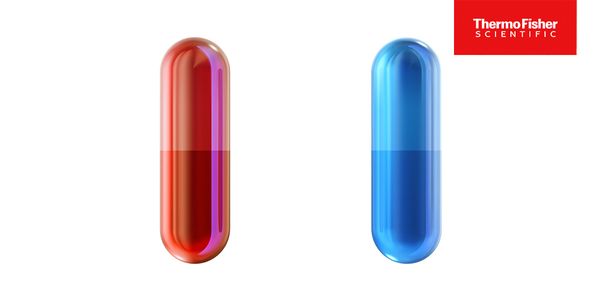APR 02, 2024 | 8:00 AM
Circulating tumor cells (CTCs) and circulating tumor DNA (ctDNA) have each gained attention as promising liquid biopsy markers, offering molecular insights into cancer progression, overall s...
MAR 28, 2024 | 10:00 AM
Digital SPR (dSPR) is a next-generation technology for characterizing biomolecular interactions. By combining digital microfluidics (DMF) with localized SPR (LSPR), digital SPR systems can e...
MAR 28, 2024 | 8:00 AM
Flow cytometry is a powerful method for the quantification of microorganisms, unparalleled by other technologies. We will (1) give an overview of the benefits and use cases of flow cytometry...
MAR 28, 2024 | 8:00 AM
B cell responses within pancreatic ductal adenocarcinoma (PDAC) tumors are associated with improved patient outcomes, yet the specific triggering antigens remain largely unknown. In this web...
MAR 27, 2024 | 9:00 AM
Join Dr. Emily Hodges, assistant professor of biochemistry at Vanderbilt University, to learn more about how the Hodges Lab is utilizing the 6-base genome to investigate the dynamics of enha...
MAR 26, 2024 | 7:00 PM
C.E. CREDITS
The implementation of a preemptive pharmacogenomics (PGx) program in a hospital setting requires a multidisciplinary approach to ensure seamless integration of each stage of the process for...
MAR 26, 2024 | 11:00 AM
Ever wonder what you’re missing in your data? The sheer complexity of today’s flow and mass cytometry datasets demands automated solutions. Machine learning plugins only provide...
MAR 26, 2024 | 8:00 AM
C.E. CREDITS
The implementation of a preemptive pharmacogenomics (PGx) program in a hospital setting requires a multidisciplinary approach to ensure seamless integration of each stage of the process for...
MARCH 22, 2024 3:30 PM ET
Cellular and gene-based therapeutic approaches are the future of medicine for many conditions. As the CGT field expands and deepens, the need for consistent and reliable partners becomes cri...
As workflow efficiency and data reproducibility are common challenges faced by scientists for high throughput laboratories, GenScript has developed unique automation technologies to address...
MAR 20, 2024 | 9:00 AM
C.E. CREDITS
Join us in this enlightening session to deepen your understanding of qualifications and their transformative impact on risk management and regulatory adherence. Gain actionable insights that...
Nanovials are emerging as an accessible platform for performing single-cell functional screening leveraging standard instrumentation, such as flow cytometers and microfluidic single-cell seq...























